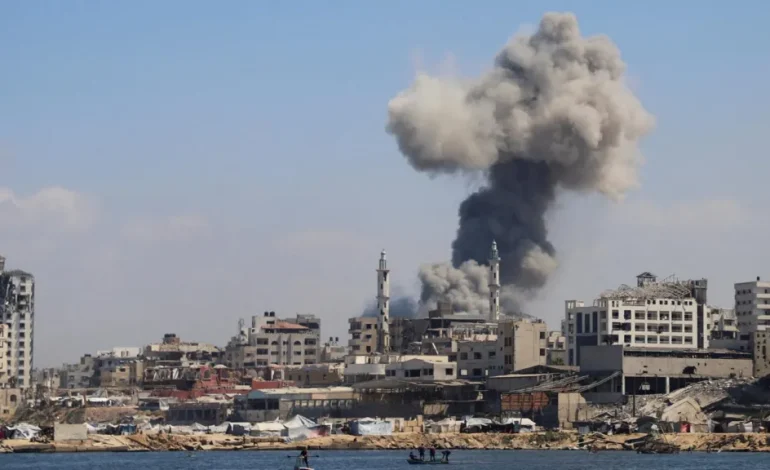‘Cataclysmic’ in Gaza City: Tanks push in, hospitals buckle, civilians run out of options

Day three of Israel’s ground push into Gaza City has turned an already dire situation into what a UN official called “nothing short of cataclysmic.” Olga Cherevko of the UN humanitarian office said she watched a constant stream of people heading south on a recent trip, even as hundreds of thousands remain jammed inside the city under bombardment.
Residents reported Israeli tanks rolling into the Sheikh Radwan and Tal al-Hawa neighborhoods after days of heavy strikes. Troops are “expanding” operations, the Israeli military said, describing its goals as dismantling Hamas infrastructure, defeating an estimated up to 3,000 fighters in their main stronghold, and bringing hostages home.
The human toll is mounting fast. Local hospitals said at least 14 people were killed across the strip Thursday, nine in Gaza City alone. Since the war began in October 2023, Gaza’s health ministry says at least 65,141 people have been killed, with 435 deaths attributed to malnutrition and starvation—numbers aid groups warn are almost certainly undercounts.
Health care is on the brink. The World Health Organization warned overwhelmed facilities can’t cope and that aid deliveries are being blocked. Only 17 hospitals across Gaza remain partially functional—with about 1,790 in-patient beds for 2.1 million people—driving occupancy to 180–300%. Ten of those hospitals are in Gaza City. On Tuesday, strikes damaged al-Rantisi Children’s Hospital, knocking out water tanks and key systems; 40 patients fled, while 40—including ICU children and newborns—remained inside.
Movement offers little relief. The UN says at least 200,000 people have crossed from northern to southern Gaza since mid-August, ~55,000 since Sunday. Many can’t afford transport and walk south carrying a mattress or a plastic bag, Cherevko said. Those who make it often end up sleeping on sidewalks in Deir al-Balah or Khan Younis with no shelter, services, or safety guarantees.
Communications are failing too. Internet and phone lines were cut across the strip as main network routes were hit—an ominous sign residents say often precedes escalated ground operations.
Inside the city, fighting is grinding, intimate, and increasingly destructive. Witnesses described remotely driven, explosives-laden vehicles detonated in residential blocks, leveling homes. UN convoys reported strikes “very close” as they moved, describing “a constant hit after hit.”
Israeli commanders have urged civilians to evacuate toward a so-called humanitarian zone in the south. But aid officials say that area is already overstretched, with too little food, water, medicine, or space.
“The injured and people with disabilities cannot move to safety,” WHO chief Tedros Adhanom Ghebreyesus said, calling the conditions “unfit for human dignity” and warning that hospitals are “on the brink of collapse.”
International condemnation of the Gaza City assault continues to swell, even as Israel insists the offensive is necessary to free hostages and dismantle Hamas’s military and governing capacity. On the ground, civilians face the same grim choice they’ve had for months: flee into uncertainty—or stay amid shelling, tanks, and a health system that’s running on fumes.
BBC, Al Jazeera, and Reuters and contributed to this report.









The latest news in your social feeds
Subscribe to our social media platforms to stay tuned